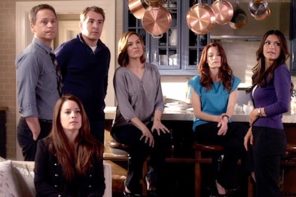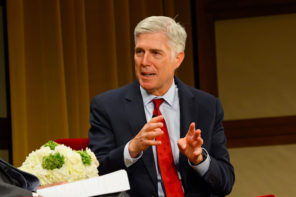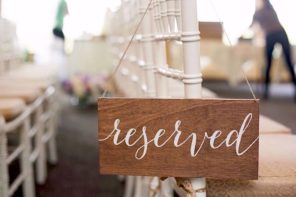While conservatives are celebrating today’s Supreme Court decision in Town of Greece v. Galloway as a crucial victory for religious freedom, advocates of church-state separation are warning that the decision could lead to the marginalizing of religious minorities in localities across the country, and increased litigation as the boundaries of the ruling are tested.
The case involved a challenge to an upstate New York’s town practice of opening its monthly town board meeting with prayer. Historically the prayers were overwhelmingly Christian, or as Justice Elena Kagan put it in her dissent, “constantly and exclusively so.”
In a 5-4 decision, the Court held that the practice did not violate the Establishment Clause.
In the majority opinion, Justice Anthony Kennedy relied on the Court’s 1983 decision inMarsh v. Chambers, which upheld the practice of opening state legislative sessions with prayer by a government-funded chaplain. Writing that the founders “considered legislative prayer a benign acknowledgment of religion’s role in society,” Kennedy maintained that “[a]n insistence on nonsectarian or ecumenical prayer as a single, fixed standard is not consistent with the tradition of legislative prayer outlined in the Court’s cases.”
Georgia State University constitutional law professor Eric Segall has described Marsh as creating a “pernicious historical test” that relies on the centuries-old precedent of prayer rather than a constitutional analysis of whether legislative prayer violates the Establishment Clause.
As Justice Kagan argued in her dissent, joined by Justices Breyer, Ginsburg, and Sotomayor, “Greece’s prayers cannot simply ride on the constitutional coattails of the legislative tradition Marsh described.” She pointedly enumerated the distinctions between Marsh and the Greece case, writing that “[n]one of the history Marsh cited—and none the majority details today—supports calling on citizens to pray, in a manner consonant with only a single religion’s beliefs, at a participatory public proceeding, having both legislative and adjudicatory components.” Unlike a state legislative session, town board meetings “both by design and in operation, allow citizens to actively participate in the Town’s governance—sharing concerns, airing grievances, and both shaping the community’s policies and seeking their benefits,” she wrote.
Kagan detailed the continuous instances in Greece during which prayer was conducted in Jesus’s name, raised hypotheticals about how such prayer would affect a non-Christian Greece resident, and concluded that the majority’s decision was driven by a mistaken “What’s the big deal, anyway?” message.
Segall said of today’s decision: “If eight years of exclusively Christian prayers with prayer-givers asking people to bow their heads and incidents of denigration of minority faiths isn’t enough to make out an Establishment Clause violation,” then the Court “has read the Establishment Clause out of prayer.” The town, he said, “clearly favored Christianity over other religions and in a way that was in fact quite coercive—people have to go to town council meetings, they were asked to pray to Jesus, and if they didn’t, they would stand out.”
In a statement condemning the ruling, the Rev. Barry Lynn, executive director of Americans United for the Separation of Church and State, which sponsored the lawsuit, said, “The Supreme Court just relegated millions of Americans— both believers and nonbelievers—to second-class citizenship. Government should not be in the business of forcing faith on anyone, and now all who attend meetings of their local boards could be subjected to the religion of the majority.”
In holding that the town’s practice was constitutional, Justice Kennedy refused to designate the courts as referees over the content of the prayers, writing, “[t]o hold that invocations must be nonsectarian would force the legislatures that sponsor prayers and the courts that are asked to decide these cases to act as supervisors and censors of religious speech, a rule that would involve government in religious matters to a far greater degree than is the case under the town’s current practice of neither editing or approving prayers in advance nor criticizing their content after the fact.”
Still, though, the decision does not open the door to sectarian legislative prayer without limits. Kennedy did note that “[i]n rejecting the proposition that legislative prayer must be nonsectarian, the Court does not imply that no constraints remain on its content.”
Daniel Mach, director of the American Civil Liberties Union Program on Freedom of Religion and Belief, stressed that the Court “did not endorse an anything goes approach,” but “made clear that a pattern of prayers over time that proselytize, indoctrinate, or disparage others would be constitutionally problematic.”
Conservatives are cheering the case as a victory over what they claim is censorship of public prayer, even though the case was not about elimination or censorship of legislative prayer. As Kagan’s dissent observes, meetings do not have to be “religion- or prayer-free,” but “what the circumstances here demand is the recognition that we are a pluralistic people too.”
But the National Day of Prayer Task Force, which just held its national observance in the Cannon House Office Building last week, characterized the dispute as one over prayer versus censorship, and objections to sectarian prayer as expressions of hurt feelings rather than constitutional violations. The group said in a statement that today’s decision “protects the freedom of community volunteers to pray according to their faith in a public setting, without censorship” and “defends the prayer giver’s freedom of speech over an ‘offended’ person’s demands for censorship.”
Senior Counsel David Cortman of Alliance Defending Freedom, which represented the town, also described the result in a statement as a victory over attempted religious censorship, saying, “Speech censors should have no power to silence volunteers who pray for their communities just as the Founders did.”
Similarly, Ralph Reed, chairman of the Faith and Freedom Coalition, portrayed the conflict as one between ordinary Americans who wanted to engage in “voluntary prayer” and those who wanted to eliminate prayer from the public square. “To censor or ban these expressions of faith, including prayer, simply because they occur in a civic setting would not only violate a time-honored practice and the First Amendment, but the right to freedom of speech for millions of Americans,” he said in a statement.
Reed vowed his group now “would redouble its efforts to encourage opportunities for prayers offered at meetings by town boards, city councils, and county commissions nationwide.”
Americans United’s Lynn, who called the decision “out of step with the realities of modern-day America,” said “a Supreme Court decision that gives the green light to ‘majority-rules’ prayer at local government is exactly what we don’t need.”
But the ACLU’s Mach cautioned that although some may be emboldened to engage in more sectarian legislative prayer, the Court’s decision leaves open the possibilty that some practices may indeed cross a constitutional line. While “there is a danger that some will use this opinion to enlist the machinery of government to promote their faith,” he said, if “those efforts go too far we will likely see more litigation on the same subject.”




